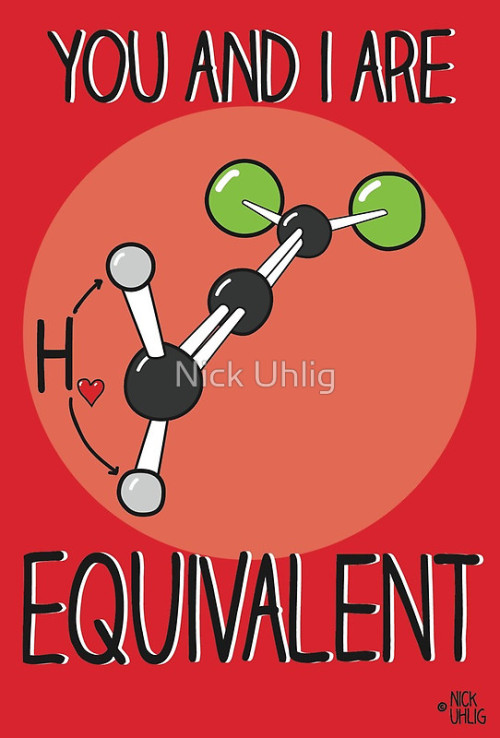The official page of Drunk Science! An enthusiastic host performs simple experiments and then humorously explains the science behind the result, all while visibly drunk.
126 posts
Latest Posts by drunkscience4u - Page 4


Cloud Chambers: Visualizing Radiation
The cloud chamber, also known as the Wilson chamber, is a particle detector used for detecting ionizing radiation.
In its most basic form, a cloud chamber is a sealed environment containing a supersaturated vapor of water or alcohol. When a charged particle (for example, an alpha or beta particle) interacts with the mixture, the fluid is ionized. The resulting ions act as condensation nuclei, around which a mist will form (because the mixture is on the point of condensation).
The high energies of alpha and beta particles mean that a trail is left, due to many ions being produced along the path of the charged particle. These tracks have distinctive shapes, for example, an alpha particle’s track is broad and shows more evidence of deflection by collisions, while an electron’s is thinner and straight. -(x)
More science and gifs on my blog: rudescience Gif made from: This video by The Royal Institution References: (x), (x).

Old but gold 💛

Mole-cool







Chemistry Valentine’s Cards by Nick Uhlig.

Happy Valentine’s day!
From Pluto, with love!
http://www.space.com/35262-pluto-heart-photos-nasa-gallery.html

Hold your nose at this science pun.









Black Hole Caught Devouring Star For An Entire Decade
“Normally lasting weeks or months, a new record has just been set for TDEs. XJ1500+0154, 1.8 billion light years away, is the largest, longest-lasting one ever seen. First detected in July of 2005, the X-rays from this distant source brightened by a factor of 100 over 3 years. They remain bright even today. Although dozens of TDEs have been observed since the 1990s, none have lasted this long. It may be caused by the most massive star ever observed creating a TDE.”
When any object passes too close to the event horizon of a black hole, the tidal forces acting on it can become so strong that they’ll tear the entire object apart in a spaghettification disaster. While most of the matter will get ejected from the encounter, a significant fraction can be accreted, absorbed and used to fuel the black hole’s growth. These tidal disruption events have been seen numerous times since the launch of our X-ray observatories, and are now known to come in a wide variety of magnitudes, at a variety of distances and to last a variable amount of time. So when you see the largest, longest-lasting one ever, you sit up and take notice! That’s exactly what’s happened with XJ1500+154, which is now in its second decade of X-ray signals.
Come get the full story on this amazing object, and learn how it might solve the puzzle of supermassive black hole growth on today’s Mostly Mute Monday!










Black Hole Caught Devouring Star For An Entire Decade
“Normally lasting weeks or months, a new record has just been set for TDEs. XJ1500+0154, 1.8 billion light years away, is the largest, longest-lasting one ever seen. First detected in July of 2005, the X-rays from this distant source brightened by a factor of 100 over 3 years. They remain bright even today. Although dozens of TDEs have been observed since the 1990s, none have lasted this long. It may be caused by the most massive star ever observed creating a TDE.”
When any object passes too close to the event horizon of a black hole, the tidal forces acting on it can become so strong that they’ll tear the entire object apart in a spaghettification disaster. While most of the matter will get ejected from the encounter, a significant fraction can be accreted, absorbed and used to fuel the black hole’s growth. These tidal disruption events have been seen numerous times since the launch of our X-ray observatories, and are now known to come in a wide variety of magnitudes, at a variety of distances and to last a variable amount of time. So when you see the largest, longest-lasting one ever, you sit up and take notice! That’s exactly what’s happened with XJ1500+154, which is now in its second decade of X-ray signals.
Come get the full story on this amazing object, and learn how it might solve the puzzle of supermassive black hole growth on today’s Mostly Mute Monday!

Hey Tumblr fam, I need some help
I created this anti-hangover popsicle, have tested the crap out of it, and yes it works amazing. My friends love it, but I’m struggling with sales. Just being honest here.
Anyway, if you get a chance please check out our website Lushzie.com I would love your feedback.
So for all my tumblr fam we are offering the popsicle that will literally end your hangovers for just $1 (to cover shipping) use code “TUMBLRFAM” at checkout.
The popsicle contains coconut water, electrolytes, and nutrients to protect your liver and help your body metabolize alcohol faster preventing a hangover.
Full trailer up TODAY! Click on the link in our bio to watch! #stem #funny #youtube #badjokes #lab #wine #drinking http://ift.tt/2kXXIDw



The Juno mission has been revealing angles of Jupiter we’ve never seen before. This photo shows Jupiter’s northern temperate latitudes and NN-LRS-1, a.k.a. the Little Red Spot (lower left), the third largest anticyclone on Jupiter. The Little Red Spot is a storm roughly the size of the Earth and was first observed in 1993. As an anticyclone, it has large-scale rotation around a core of high pressure and rotates in a clockwise direction since it is in the northern hemisphere. Jupiter’s anticyclones seem to be powered by merging with other storms; in 1998, the Little Red Spot merged with three other storms that had existed for decades. (Image credit: NASA/JPL-Caltech/SwRI/MSSS/Gerald Eichstaedt/John Rogers; via Bad Astronomy)








This Black History Month, let’s celebrate the first African-American woman who traveled in space.

Let’s celebrate black people, who made history! This is so important to know that some of us didn’t give up and were strong enough to achieve something great like this. These stories are inspirational , but we don’t see them in our history books. Even though she was told women can’t go into space, she never stopped believing in her dreams.
“As a little girl, I was excited, and people kept trying to explain to me why women couldn’t go into space,” Jemison said, according to the university’s student newspaper, The Plainsman. “I always thought they were full of it.”
She’s the role model for every black kid, who has big dreams! She is a living proof everything’s possible!
#BlackHistoryMonth


The ancestor of all vertebrates, including fish, reptiles and humans was a big mouth but apparently had no anus.
The microscopic creature named Saccorhytus, after the sack-like features created by its elliptical body and large mouth, lived 540 million years ago. It was identified from microfossils found in China.
“To the naked eye, the fossils we studied look like tiny black grains, but under the microscope the level of detail is jaw-dropping,” says team member Simon Conway Morris, of the University of Cambridge, in the UK.
Researchers believe it was about a millimetre in size, lived between grains of sand on the sea bed and had a large mouth relative to the rest of its body.
They also think the creature was covered with a thin, relatively flexible skin, had some sort of muscle system which could have made contractile movements and allowed it to move by wriggling.
Continue Reading.






Pan-STARRS solves the biggest problem facing every astronomer
“The science that came out of it alone is staggering. Nobody has had as much astronomical data in all of history as what Pan-STARRS has produced. They’ve discovered about 3,000 new near-Earth objects; tens of thousands of asteroids in the main belt, approximately 300 Kuiper belt objects (about a third of all the Kuiper belt objects ever discovered), and imaged a total of more than three billion verified objects. For those of you wondering, there’s no evidence for or against Planet Nine in the data, but the Pan-STARRS data does support that our Solar System ejected a fifth gas giant in its distant past.”
If you want to observe the night sky, it’s not quite as simple as pointing your telescope and collecting photons. You have to calibrate your data, otherwise your interpretation of what you’re looking at could be skewed by gas, dust, the atmosphere or other intervening factors that you’ve failed to consider. Without a proper calibration, you don’t know how reliable what you’re looking at is. The previous best calibration was the Digitized Sky Survey 2, which went down to 13 millimagnitudes, or an accuracy of 1.2%. Just a few weeks ago, Pan-STARRS released the largest astronomy survey results of all-time: 2 Petabytes of data. It quadruples the accuracy of every calibration we’ve ever had, and that’s before you even get into the phenomenal science it’s uncovered.
Come learn how it’s solved the biggest problem facing every astronomer, and why observational astronomy will never be the same!


















